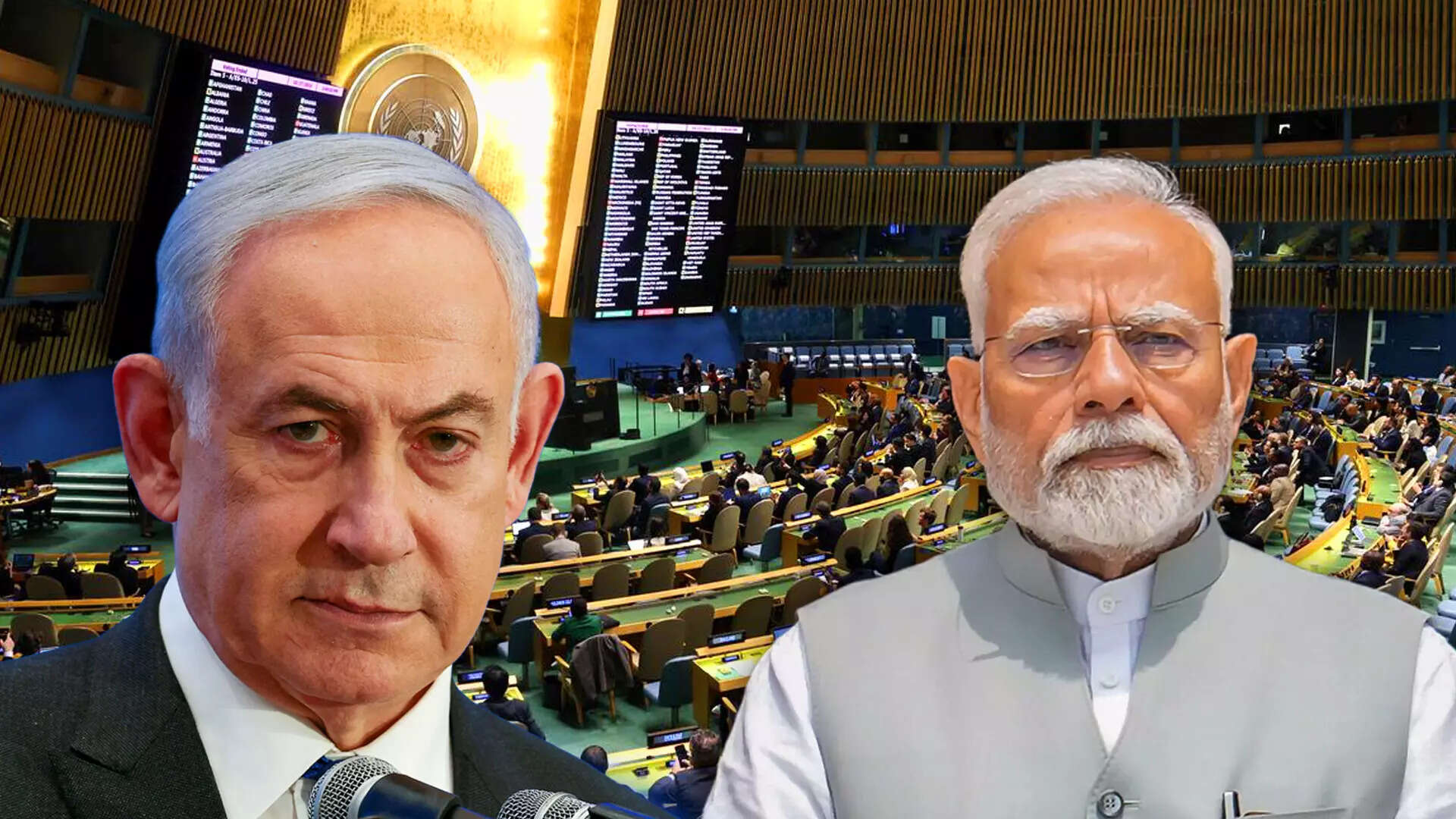Politics
India Votes for Palestine’s Statehood, Challenging Israel Ties

India has taken a significant diplomatic step by voting in favor of a United Nations resolution that endorses Palestine’s statehood. This decision comes in stark contrast to the position of its longstanding ally, Israel, which opposed the motion. The resolution, co-chaired by France and Saudi Arabia, garnered support from 142 nations and called for a two-state solution. It condemned the October 7 attack by Hamas and criticized Israel’s military actions in Gaza, urging an end to violence, settlements, and territorial annexations.
The vote has sparked extensive debate regarding India’s foreign policy direction. Observers are questioning whether this stance represents a principled commitment to peace in the region or a strategic shift in India’s relations within West Asia. The United States and Israel expressed their disapproval of the resolution, while many Arab nations welcomed India’s support, indicating a complex web of diplomatic relations.
Implications of India’s Vote
India’s endorsement of the resolution marks a pivotal moment in its diplomatic history. The decision reflects a careful balancing act, as India seeks to strengthen ties with Arab nations while managing its relationship with Israel. The country has traditionally supported Palestinian aspirations, often advocating for a negotiated settlement to the conflict. However, this vote signifies a more assertive approach on the international stage.
Critics of the move argue that India’s relationship with Israel may suffer as a result. Israel has been a key partner for India in areas such as defense, technology, and trade. The implications of this vote could lead to a reevaluation of bilateral ties, particularly in light of Israel’s ongoing security concerns and its response to the Palestinian situation.
Supporters of India’s decision emphasize the need for a balanced approach to Middle Eastern politics. By backing Palestine, India positions itself as a proponent of peace and stability in a region fraught with conflict. This may resonate well with countries that have historically aligned with the Palestinian cause, potentially opening doors for enhanced cooperation in various fields.
Global Reactions and Future Prospects
The reaction to India’s vote has been mixed. While many Arab nations expressed appreciation for India’s stance, Western allies have voiced concern. Diplomatic experts suggest that India’s decision could reshape alliances in the Middle East, especially as the geopolitical landscape evolves.
As the situation develops, India may need to navigate the complexities of its relationships carefully. The country’s foreign policy will likely continue to adapt in response to changing dynamics in the region. The international community is watching closely, as India’s actions could have lasting effects on peace efforts and regional stability.
In summary, India’s recent vote at the United Nations marks a bold reaffirmation of its support for Palestinian statehood while testing its diplomatic ties with Israel. With both immediate and long-term implications, this decision illustrates the intricate balancing act that India must perform in a rapidly changing geopolitical environment.
-

 World4 months ago
World4 months agoSBI Announces QIP Floor Price at ₹811.05 Per Share
-

 Lifestyle4 months ago
Lifestyle4 months agoCept Unveils ₹3.1 Crore Urban Mobility Plan for Sustainable Growth
-

 Science3 months ago
Science3 months agoNew Blood Group Discovered in South Indian Woman at Rotary Centre
-

 World4 months ago
World4 months agoTorrential Rains Cause Flash Flooding in New York and New Jersey
-

 Sports3 months ago
Sports3 months agoBroad Advocates for Bowling Change Ahead of Final Test Against India
-

 Top Stories4 months ago
Top Stories4 months agoKonkani Cultural Organisation to Host Pearl Jubilee in Abu Dhabi
-

 Science4 months ago
Science4 months agoNothing Headphone 1 Review: A Bold Contender in Audio Design
-

 Top Stories4 months ago
Top Stories4 months agoAir India Crash Investigation Highlights Boeing Fuel Switch Concerns
-

 Sports3 months ago
Sports3 months agoCristian Totti Retires at 19: Pressure of Fame Takes Toll
-

 Business4 months ago
Business4 months agoIndian Stock Market Rebounds: Sensex and Nifty Rise After Four-Day Decline
-

 Politics4 months ago
Politics4 months agoAbandoned Doberman Finds New Home After Journey to Prague
-

 Top Stories4 months ago
Top Stories4 months agoPatna Bank Manager Abhishek Varun Found Dead in Well









